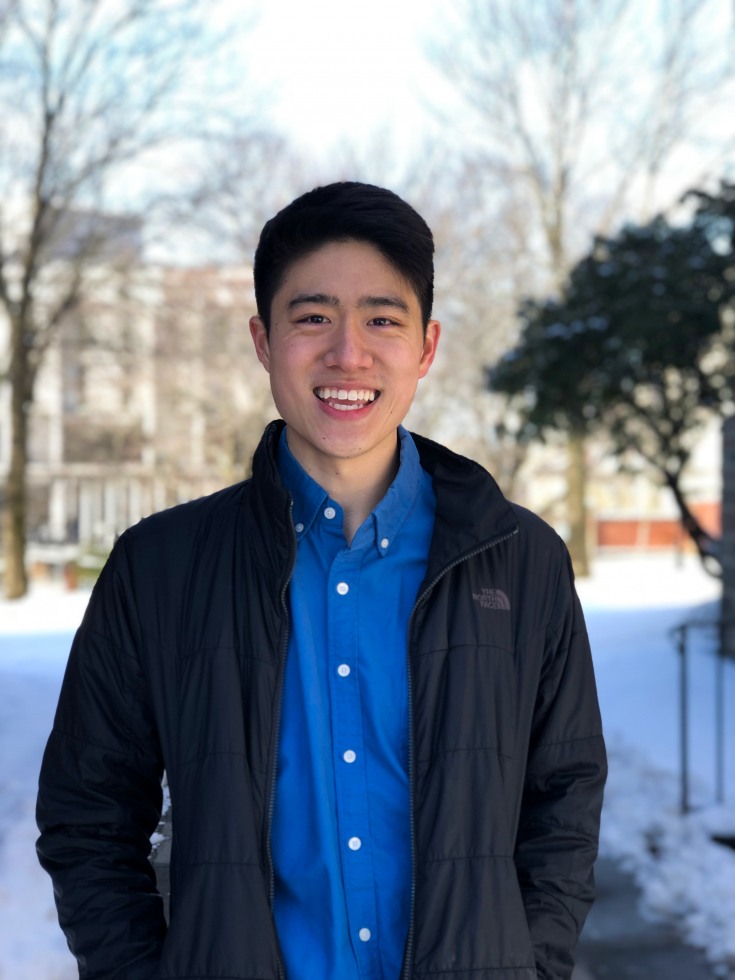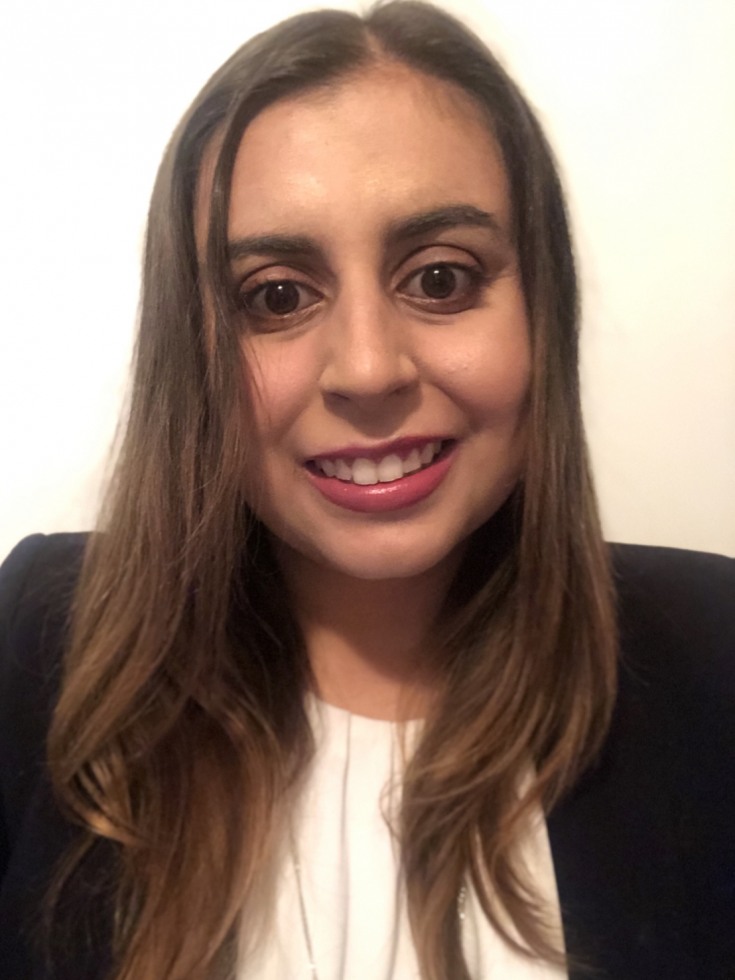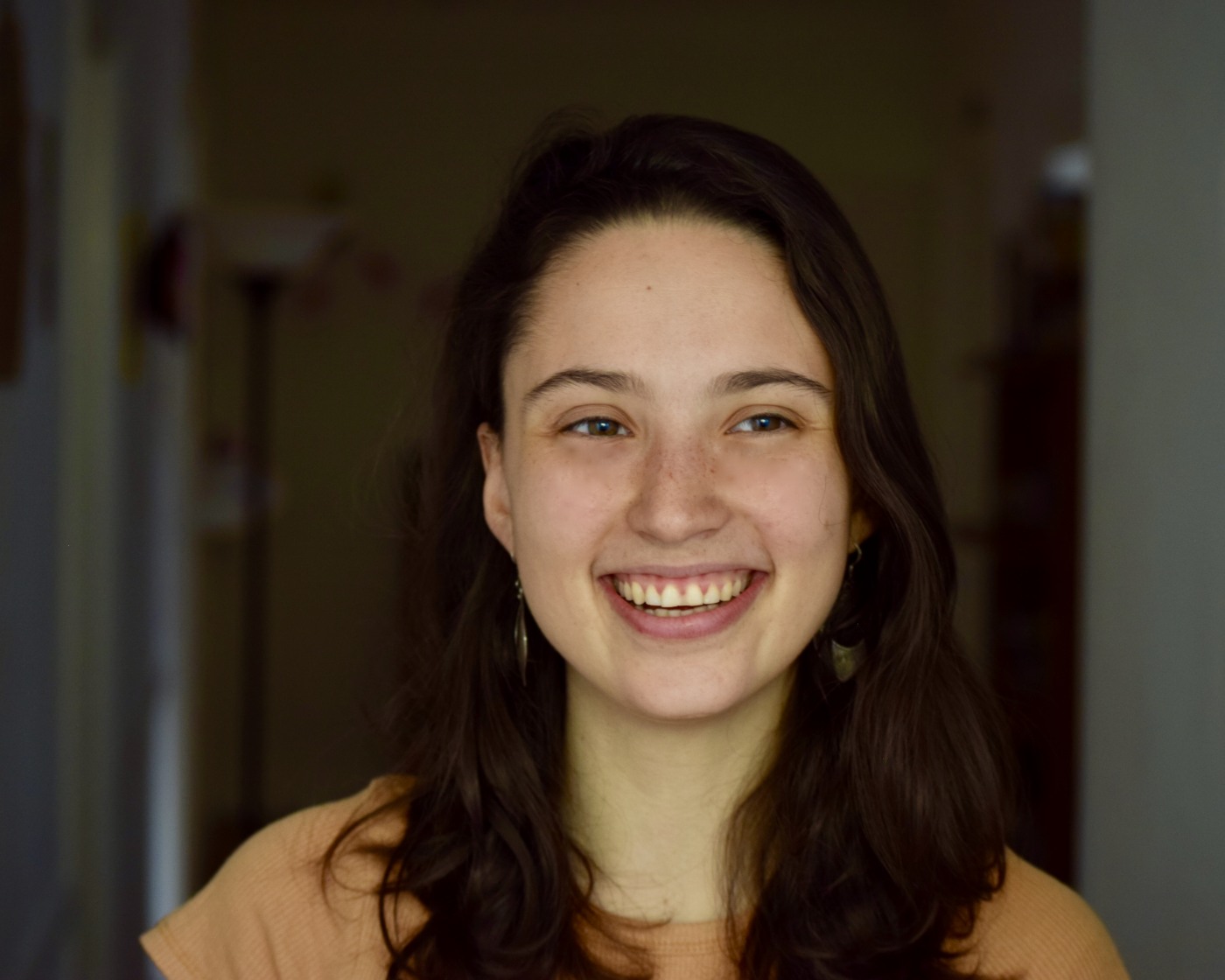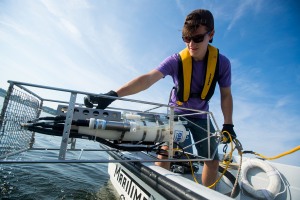BrownConnect Summer Institute: Adapting a beloved novel into a Broadway play
As part of the BrownConnect Summer Institute, Brown students and recent graduates considered the creative and practical challenges of transforming the bestselling novel “Wonder” into a Broadway musical.
PROVIDENCE, R.I. [Brown University] — This spring, Elana Confino-Pinzon began her last semester at Brown with theater on the brain. A political science concentrator aspiring to become an entertainment lawyer, Confino-Pinzon had planned to engage in as many performing arts courses and productions as possible in the months leading up to graduation.
But theater was among the many industries shuttered as COVID-19 swept the East Coast, leaving Confino-Pinzon without the performing arts experiences she had hoped to have before leaving for law school this fall.
“I was supposed to go see a show with my playwriting class that never happened, and then there were all of the on-campus productions this spring that would have happened and everything that goes along with that,” she said. “We missed so much.”
But a singular experience arose this summer for Brown students and recent graduates who, like Confino-Pinzon, sought to gain performing arts experience in a newly-remote world.
This July, Confino-Pinzon was one of 10 Brown students and new graduates who participated in a series of new play development workshops led by Jill Furman, a Brown alumna and one of the Broadway producers behind the international sensation “Hamilton.”
Sponsored by the BrownConnect Summer Institute, these workshops focused on Furman’s newest project — a Broadway musical adaptation of “Wonder,” the bestselling R. J. Palacio novel about Auggie Pullman, a fifth-grade boy whose physical anomalies inform his experience of the world.
So much thought and intention goes into every single decision. It made me appreciate just how much goes into making the media I enjoy.

Over the course of three weeks, Furman invited student participants to provide input on three questions that will shape her decisions as she continues to develop the play: How can we adapt this story to the stage? How should we produce it? And how should we promote it?
“I said to them, ‘There are no right answers,’” she said. “I’m very much a best-idea-in-the room producer.”
As the students began engaging with Furman’s questions, they quickly learned that practical considerations often shape creative decisions in the performing arts.
For example, in the group’s discussion about stage adaptation, Auggie’s dog — a constant presence in the novel, and a catalyst for Auggie’s personal growth — presented unexpected challenges.
“It's really hard to have a dog onstage — logistically, financially, all of those things — and so all of a sudden your storytelling decisions have to take account of those practical parameters,” said Francesca Sabel, a rising senior studying English and history.
Faced with these material challenges, the group arrived at a broader creative question: What other ways could they show Auggie’s growth that might better translate to the stage?
Contributing to these discussions gave Sabel a new perspective on what it means to create for the stage.
“In a college theater class, you're thinking in terms of ideals, which is great, but I think it's also important to consider the material challenges of staging something,” she said. “Necessity is the mother of invention, so it can spark new ideas when you think, ‘OK, this isn't going to work the way it’s written, so let's make it work some other way.’”

Working on the “Wonder” project also revealed the key role that business sense plays when bringing a show to life, said Bashar Zaidat, a rising senior.
“I had always thought that you have an idea, you write a script, you get some actors and it just sort of manifests,” he said. “I didn’t think about the business side — pitching the idea to different theaters, raising start-up costs and planning advertising. I learned a lot about the longitudinal path this process often takes.”
William Zhou, a Class of 2020 graduate, added: “So much thought and intention goes into every single decision. It made me appreciate just how much goes into making the media I enjoy.”
A lasting impact
Participating in the workshops also provided students with insights that they will take into their respective careers — both in the theater world and beyond.
For Confino-Pinzon, seeing the diverse skill set that theater producers draw upon piqued her interest in one day becoming one.
“Usually in theater we see that people are in two different camps — either you're on the creative side or you're making sure the show runs,” she said. “This experience really opened my eyes to how the role of producer blurs the line between what is creative and what is production. The fact that they’re involved in a little bit of both made me excited to step into that role one day.”
As an independent concentrator who is studying computational neuroscience, Zaidat said the insights he has gained into a producer’s role offer valuable lessons for any career.
“I think a lot of the same skills and lessons I've learned through this experience — like recognizing both the small details and the need to sometimes step back and see the big picture — will serve me well no matter what path I go down,” he said.
This experience really opened my eyes to how the role of producer blurs the line between what is creative and what is production. The fact that they’re involved in a little bit of both made me excited to step into that role one day.

For Sabel, who hopes to direct new plays after graduation, the experience has offered a look at the types of challenges and opportunities that arise when developing new plays for the world’s biggest stages.
“This has been such a cool peek into a very large-scale, real-world version of our theater experiences at Brown,” she said.

It also complemented the emphasis on innovative, collaborative problem-solving that Sabel says has characterized her learning experiences at Brown.
“In high school, you very much need to have the right, smartest and fastest answer,” she said. “Something like this project totally disproves that method of thinking. Nobody's first comment is going to be the best comment because actually it takes five people asking, 'What if?' and 'Oh! What about these things?' to get to some interesting compromise.”
For Zhou — who will soon begin work at Bain and Company, a Boston-based consulting firm — the project’s lessons about innovative collaboration transcend the stage.
“This experience reminded me to always remain creative — even in a more traditional line of work, to not restrict yourself and to bring together different ideas,” he said. “When we were all brainstorming [with Jill], some of the suggestions people shared were amazing, and the way we were feeding off each other’s energy — I felt like, if we were to continue doing this, we'd be able to come up with a really incredible show. I want to continue harnessing that energy in my work.”
The workshop series on “Wonder” was one of roughly 100 projects run by Brown alumni and parents this year through the BrownConnect Summer Institute. Organized by the Center for Careers and Life after Brown (CareerLAB) and the President’s Advisory Council on Internships, this free virtual institute provided professional insights and experiences in a wide range of fields to more than 1,100 students and new graduates — many whose original research, internships and professional plans were derailed by pandemic-related closings.
Participants had the opportunity to sign up for an array of projects — from drafting a social justice reform memo for a judge, to proposing a business venture to the CEO of a start-up, to writing a medical case report for a patient with COVID-19.
For Furman, choosing to invite students into the process of developing a new Broadway musical has been a boon as she makes early decisions about her production of “Wonder.”
“The students are so creative and so curious,” she said. “It has been both helpful and fun for me to hear their reactions and ideas.”
Besides, she added, “When I was in college, I would have loved this.”
